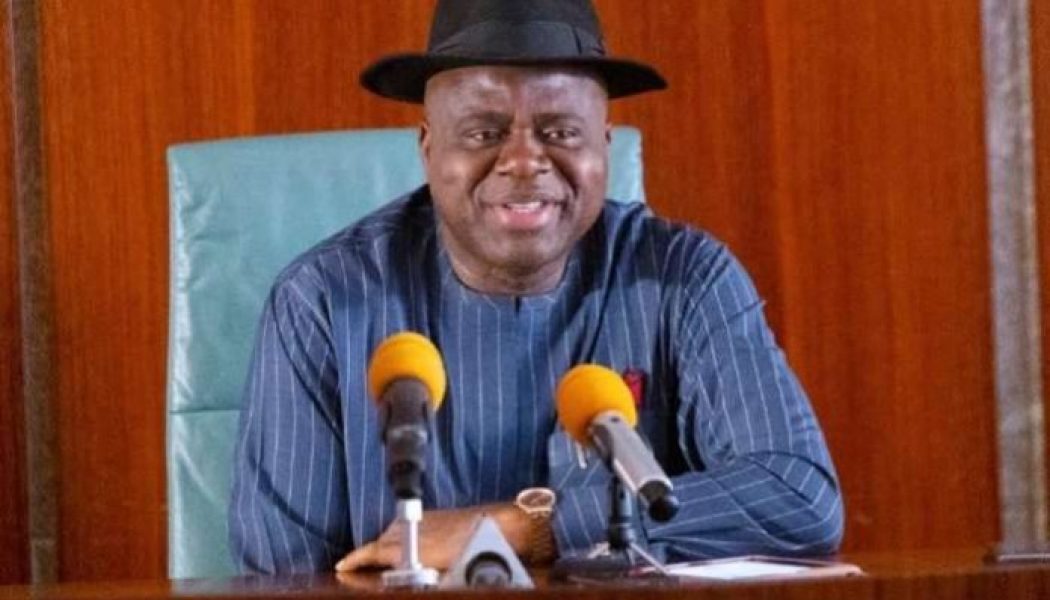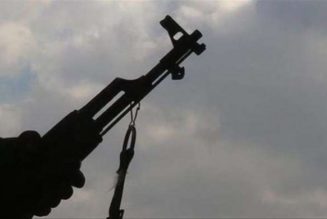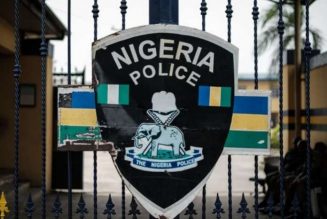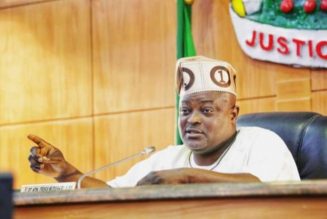
Gov. Douye Diri of Bayelsa on Tuesday proposed that 10 per cent of derived oil revenue be provided in the Petroleum Industry Bill (PIB) for the host communities.
Mr Diri, in a statement by his Chief Press Secretary, Daniel Alabrah, said this on Tuesday during a townhall meeting on the bill with members of the National Assembly in Yenagoa.
The governor said the 2.5 per cent revenue proposed for the host communities in the PIB was grossly inadequate and unacceptable to the people of the Niger Delta.
He argued that if the National Assembly members saw firsthand the level of environmental degradation and its attendant effects on the people, they would not hesitate to increase it from 10 per cent.
Mr Diri stressed that the PIB was critical in addressing issues such as unemployment, lack of transparency in the oil and gas sector, militarisation of oil production, skills acquisition and marginalisation of oil producing states.
“I restate our earlier submission that the 2.5 per cent proposed for the oil producing communities is grossly inadequate and unacceptable to us as a people.
In our proposal to you, we asked for 10 per cent for the host communities.
“When you visit some of the sites where oil is being explored; that bring multi-million dollars to this country, you will even agree with me that we should increase it further from 10 per cent,” he said.
According to him, this PIB will cure the unemployment that the oil producing communities cry about.
“This bill will create jobs, accelerate skills acquisition and remove the opacity that we are seeing today in the oil and gas industry. The whole industry is shrouded somehow in secrecy,” Mr Diri said.
Mr Diri decried the undue delay in the passage and implementation of the bill for about 14 years.
He urged members of the National Assembly to ensure its passage to engender peace and development in the region and the country as a whole.
“If this bill had been passed, billions of naira used in safeguarding oil facilities would have been deployed for development purposes,” he said.
Mr Diri expressed regrets that oil communities that bear the brunt of oil production were given no consideration while multinational oil companies were given more attention in the bill.
The governor stressed that such a situation was not in the interest of the people.
Victor Nwokolo, the Deputy Chairman, House Ad Hoc Committee on Petroleum Industry Bill, said the PIB was from the executive arm, aimed at reforming the oil and gas industry.
He promised that they would work hard to ensure the passage of the bill before the end of May.
Giving a summary of the legal framework in the PIB, Mr Nwokolo noted that it would foster sustainable prosperity in host communities.
He said that it would also as ensure that oil companies operating in the region conducted a needs assessment of the communities to determine their development needs.
In his presentation, the Chairman of the state Traditional Rulers Council, represented by the Ibedaowei of Ekpetiama Clan, King Bubaraye Dakolo, recommended that the bill took into consideration, environmental pollution, particularly gas flaring, and ensure inclusion of rights of host communities.
He also expressed displeasure with the provision of the bill making the people responsible for protecting oil facilities, saying that the provision had already criminalised them.
A spokesman of the Ijaw Youth Council (IYC) Ebilade Ekerefe, said the life expectancy of the Niger Delta people had significantly reduced as a result of the effects of gas flaring and yet the region contributed a great deal to the economic survival of the country.
The director-general, Centre for Youth Development, Okubokakpo Ombu, Ambrose Akierite, representing Odioama community and Juliet Zifawei, Deputy Director-General, Centre for Women Development, solicited the inclusion of the empowerment of women and youths in the bill.
Shortly after the meeting, members of the committee visited an oil spill site at Ikarama community in Yenagoa Local Government Area of the state.










